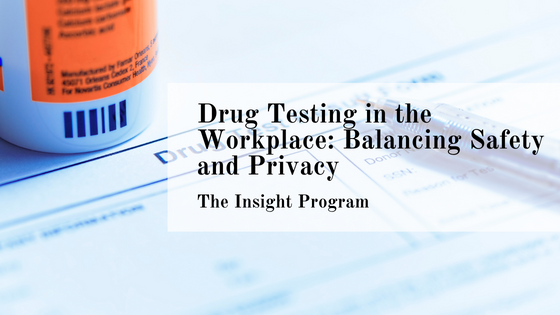Drug Testing in the Workplace: Balancing Safety and Privacy

Drug testing in the workplace is a practice that has been the subject of much debate. On one hand, it is seen as a necessary measure for ensuring safety, productivity, and a drug-free environment. On the other hand, it raises significant concerns regarding privacy, trust, and the potential for discrimination. Balancing the needs for workplace safety with the rights to personal privacy presents a complex challenge for employers and employees alike. This article explores the nuances of this issue, offering insights into how organizations can navigate the fine line between safety and privacy.
The Case for Drug Testing:
The primary argument in favor of drug testing in the workplace is safety. In industries where employees operate heavy machinery, drive vehicles, or are responsible for the well-being of others, the implications of drug impairment can be catastrophic. Drug testing is viewed as a preventive measure that can potentially save lives by ensuring that employees are in a fit state to perform their duties safely.
Beyond safety, drug testing is also seen as a way to maintain productivity and a positive work environment. Substance abuse can lead to absenteeism, decreased productivity, and increased health care costs, all of which affect an organization's bottom line. A drug-free workplace policy, enforced through drug testing, is argued to promote a healthier, more productive work environment.
Privacy Concerns and Ethical Considerations:
Despite the arguments in favor of drug testing, the practice raises significant privacy concerns. Critics argue that drug testing, especially when conducted without a clear and present reason, infringes on individual privacy rights. The process of collecting and testing samples can be seen as intrusive, and there is also the risk of sensitive information being mishandled or disclosed inappropriately.
There are ethical considerations as well. Mandatory drug testing can be perceived as a sign of distrust, potentially eroding the employer-employee relationship. It may also disproportionately affect certain groups of people, leading to issues of discrimination. Furthermore, the accuracy of drug tests is not infallible; false positives can have unjust consequences for employees, including wrongful termination.
Balancing Act: Safety vs. Privacy:
Finding a balance between ensuring safety and respecting privacy is key. Employers must navigate legal requirements, ethical considerations, and the practicalities of implementing drug testing policies. Several strategies can help achieve this balance:
Clear, Fair Policies: Organizations should establish clear drug testing policies that are communicated to all employees. These policies should outline the reasons for testing, the substances being tested for, the testing procedures, and the consequences of a positive test. Transparency is crucial to maintaining trust.
Reasonable Suspicion and Post-Accident Testing: Instead of blanket or random drug testing, some organizations opt for testing based on reasonable suspicion or following an accident. This approach is less intrusive and focuses on situations where there's a clear justification for testing.
Employee Assistance Programs (EAPs): Offering support through EAPs can be an effective way to address substance abuse issues. EAPs provide confidential counseling and support for employees struggling with drug use, helping them get the assistance they need without immediate punitive measures.
Legal Compliance: Laws regarding drug testing vary by country and, in the United States, by state. Employers must ensure that their drug testing policies comply with all relevant legal requirements, including those related to employee privacy and discrimination.
Respecting Privacy in Testing: When conducting drug tests, employers should use methods that minimize intrusiveness and ensure the confidentiality of results. Procedures should be in place to protect the privacy of employees' health information.
Drug testing in the workplace is a tool that, when used appropriately, can contribute to safety and productivity. However, it must be implemented with careful consideration of privacy rights and ethical implications. By establishing clear policies, focusing on situations where testing is most justified, providing support for employees, and respecting privacy, employers can create a safe and productive work environment while upholding the values of trust and dignity.
Balancing safety and privacy in drug testing is not straightforward, but through dialogue, transparency, and a commitment to fairness, organizations can navigate this complex issue. Ultimately, the goal should be to foster a workplace that is not only safe and productive but also respectful of the individual rights and dignity of all employees.
Originally posted on: https://theinsightprogram.co/drug-testing-in-the-workplace-balancing-safety-and-privacy/
